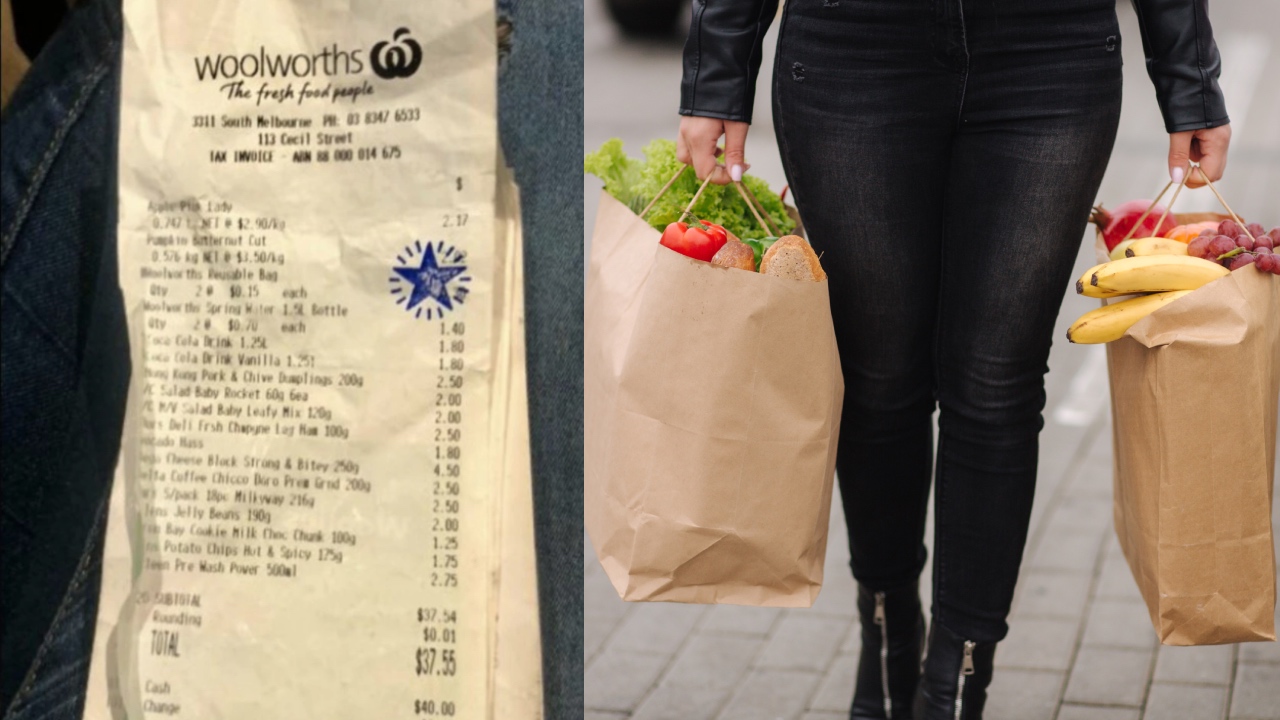Old grocery receipt highlights extortionate increase at supermarkets

An old Woolworths receipt from 2021 has revealed the grim reality of increased grocery prices, and how inflation has crippled many in just a few short years.
A social media user on X, formerly Twitter, shared her receipt from a Melbourne Woolworths as she highlighted how much more common household items cost today.
She said it showed how Aussies were shelling out for costs that appear to have moved well past official inflation levels, which rose to 3.8 per cent by the end of June.
“We all knew we’re being ripped off! Australians are now paying up to 200% more for basic grocery items than they were a few years ago!” she wrote.
“Oh but inflations (sic) currently back at around 3.8% … yeah my ass it is!!”
Her docket shows how everyday items like coffee grounds, potato chips and stain removers have skyrocketed in price.
In the receipt items such as a 250g packet of Bega cheese is priced at $4.50 – it’s now $6 for the same item, discounted from $7.50 according to online pricing.
Deli fresh Champagne leg ham sold for $2.50 for 100g according to the receipt, while current prices put that at $4.20.
Ozkleen prewash power stain remover is now currently listed as $7 for a 500ml bottle, more than 200 per cent higher than the $2.75 it sold for three years ago.
The woman also posted another smaller receipt from the same year, in which she bought grapes and a watermelon.
In addition to sharing the image, she wrote, "Another one to add! No wonder Australia is having a cost of living crises! Woolworths Receipt circa 2021. Grapes were $3.50kg, now $14.16 = 304% increase. Watermelon was $1.50 now $6.38kg = 325% increase."
Grocery prices have come under the spotlight amid the cost-of-living crisis, with the Australian Consumer and Competition Commission tasked with probing the sector.
“We know grocery prices have become a major concern for the millions of Australians experiencing cost of living pressures,” ACCC chair Gina Cass-Gottlieb said in January.
“When it comes to fresh produce, we understand that many farmers are concerned about weak correlation between the price they receive for their produce and the price consumers pay at the checkout.”
Coles and Woolworths have defended the price rises as being pushed by supply chain struggles, while both companies posted profits of more than $1 billion in the last financial year.
A spokesperson for Woolworths also released a statement saying "Ongoing economy-wide inflation means it costs more for many supermarket suppliers to manufacture their products than it did a few years ago.
"We remain focussed on delivering lower prices where we can, with our average prices coming down in the last six months, and thousands of specials every week.
"The price of fruit and vegetables can vary throughout the year due to weather, seasonality, supply and demand. For example, Haas avocados are currently not in season."
Image credits: X / Shutterstock
